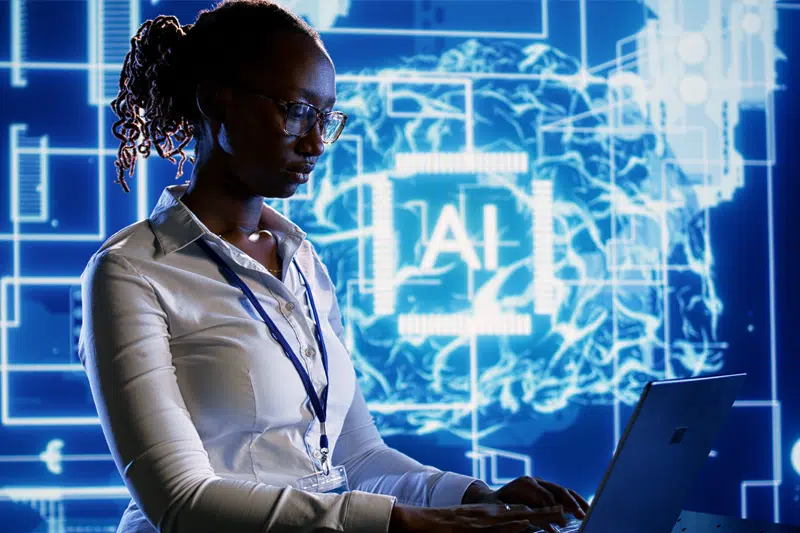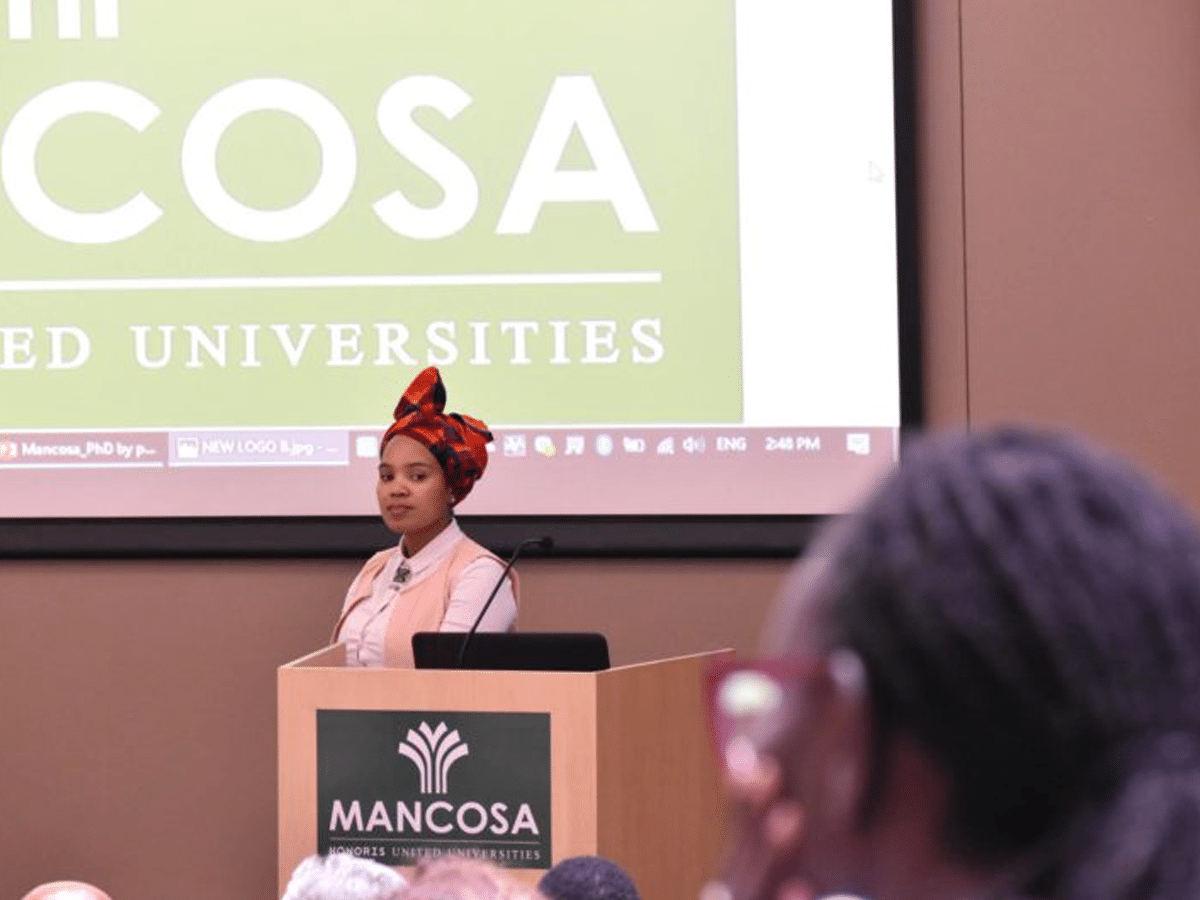The Role of AI in HR: Will Robots Replace Recruiters?
Artificial Intelligence (AI) is reshaping industries worldwide, and Human Resources (HR) is no exception. From automated resume screening to AI-driven interviews, companies are leveraging AI to enhance efficiency and decision-making in recruitment. But does this mean human recruiters will soon become obsolete?

For HR professionals and aspiring HR managers, understanding the impact of AI is crucial. In this article, we explore the role of AI in HR, its benefits and limitations, and whether it will replace recruiters altogether. If you’re considering a career in HR, MANCOSA’s Bachelor of Commerce in Human Resource Management provides the skills needed to thrive in this evolving field.
Covered in this article
- How AI is Transforming HR and Recruitment
- Why AI Can’t Fully Replace Human Recruiters
- The Future: A Hybrid Approach to AI in HR
- Conclusion
- FAQs
How AI is Transforming HR and Recruitment
AI has revolutionised multiple aspects of HR, particularly in talent acquisition, employee engagement, and workforce analytics. Some of the most significant changes include:
1. AI-Powered Recruitment Tools
Companies are increasingly using AI-driven tools to streamline the hiring process. These include:
- Resume screening software that scans CVs for keywords and ranks candidates.
- Chatbots that handle initial applicant queries and schedule interviews.
- AI-driven video interviews that analyse tone, facial expressions, and word choice.
2. Predictive Analytics for Hiring Decisions
AI can process vast amounts of data to predict which candidates are most likely to succeed in a role. Algorithms analyse past hiring decisions, employee performance, and job requirements to recommend the best-fit candidates.
3. AI in Employee Engagement and Retention
Beyond recruitment, AI helps HR teams improve employee engagement and retention by:
- Monitoring employee sentiment through email and feedback analysis.
- Identifying burnout risks by tracking work patterns and suggesting interventions.
- Providing personalised training recommendations based on career development goals.
While AI is making HR processes more efficient, the question remains—will AI replace recruiters entirely?
Why AI Can’t Fully Replace Human Recruiters
Despite its advantages, AI has limitations that make human recruiters indispensable. Here’s why:
1. The Human Element in Hiring
Recruitment is not just about matching skills to job descriptions—it involves understanding cultural fit, soft skills, and emotional intelligence. AI struggles to assess qualities such as adaptability, teamwork, and leadership potential.
2. Bias in AI Algorithms
AI is only as unbiased as the data it is trained on. If historical hiring data contains biases, AI can perpetuate and even amplify discrimination in hiring decisions. Human recruiters are essential in ensuring fair hiring practices.
3. The Need for Relationship-Building
Recruitment involves building relationships with candidates, negotiating job offers, and ensuring a positive hiring experience. Candidates often need reassurance, guidance, and personal interaction—something AI cannot replicate.
4. Ethical and Legal Considerations
AI-driven hiring processes must comply with labour laws and ethical standards. Human HR professionals are responsible for ensuring compliance, protecting data privacy, and handling complex legal matters that AI cannot navigate independently.
The Future: A Hybrid Approach to AI in HR
Rather than replacing recruiters, AI is becoming a valuable tool that enhances HR professionals’ capabilities. The future of HR will likely involve a hybrid approach, where AI handles repetitive tasks while humans focus on strategy, relationship-building, and ethical considerations.
How HR Professionals Can Adapt
To stay relevant in an AI-driven HR landscape, professionals should:
- Develop digital and analytical skills to work alongside AI tools.
- Enhance emotional intelligence and relationship management skills.
- Stay informed about HR technology trends and ethics.
- Pursue qualifications like the Bachelor of Commerce in Human Resource Management to gain a competitive edge.
Conclusion: Will Robots Replace Recruiters?
The answer is no—AI is not here to replace HR professionals but to assist them. While AI can handle data-driven tasks efficiently, human judgment, empathy, and ethical oversight remain irreplaceable in HR.
If you’re passionate about a career in HR and want to understand how AI is shaping the industry, consider enrolling in MANCOSA’s Bachelor of Commerce in Human Resource Management. Prepare for the future of HR with a qualification that blends technology, strategy, and human-centric skills.
Ready to future-proof your HR career? Explore MANCOSA’s HR Management Programme Today!
FAQs About AI in Human Resources
1. Can AI help reduce hiring costs for companies?
Yes, AI can streamline the recruitment process by automating tasks like resume screening and interview scheduling, reducing HR costs.
2. What are the risks of relying too much on AI in HR?
Over-reliance on AI can lead to biased hiring decisions, lack of human oversight, and impersonal candidate experiences, affecting employer branding.
3. How can HR professionals stay relevant in an AI-driven industry?
HR professionals should develop digital literacy, data analysis, and strategic HR skills while strengthening their interpersonal and leadership abilities.
4. Are AI-driven interviews replacing traditional interviews?
AI-driven interviews are becoming common for initial screening, but human interviews are still essential for assessing cultural fit and soft skills.
5. What HR roles are least likely to be automated?
Roles requiring emotional intelligence, conflict resolution, and strategic workforce planning are less likely to be replaced by AI in the near future.





